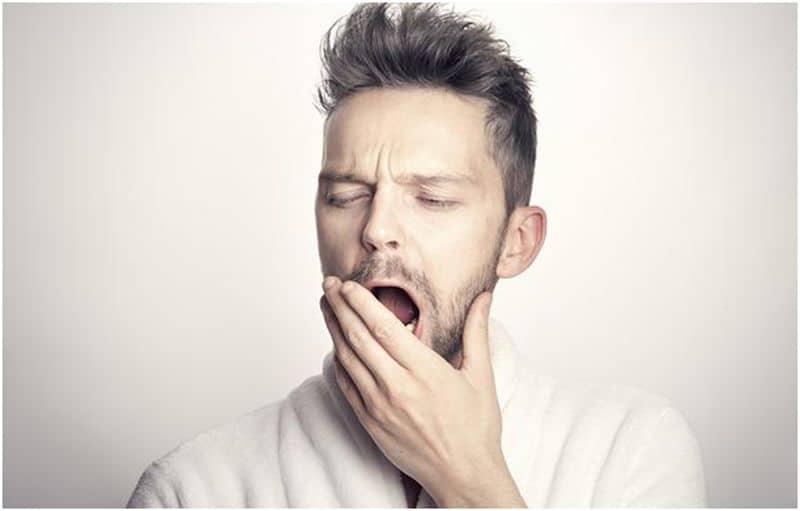Sleep is one of the most critical activities the human body requires to maintain its function. It is extremely important for the brain after a long period of activity. As a result, sleeping disturbances can have mental and physical consequences.
A sleeping disorder called insomnia affects a person’s ability to fall or stay asleep. Almost a quarter of the world’s population suffers from insomnia, one of the most prevalent sleep disorders. Even though many people are at risk from insomnia, little is known about them. Keep reading the following lesser-known facts about insomnia if you are suffering from it.
1. Women Are More at Risk of Insomnia
According to the National Sleep Foundation, the probability of women suffering from insomnia is two times higher than that of males. Women are more likely to suffer from nighttime sleeplessness than males because of the regular hormonal shifts during their menstrual cycles, pregnancy, menopause, and other related life events.
2. Sleeping Pills Can Not Cure Insomnia
People living with Insomnia frequently receive prescriptions for sleeping medications. The National Sleep Foundation reports that one in every four people in the United States takes some kind of sleeping pills yearly to get a peaceful sleep.
Unfortunately, there is no medicine proven effective by sleep specialists to treat insomnia. A proper dosage of Suboxone may help, though. But, they place a greater emphasis on cognitive therapy sessions for patients to assist them in sleeping more soundly.
3. Heredity Can Be a Cause of Insomnia
Insomnia was discovered to be associated with specific genetic variants on chromosomes 7 and 9, according to the research that analyzed the entire genome of people who suffer from the disorder of insomnia. Chromosome 7 is located close to a gene that is implicated in both the brain’s development and the electrical signaling that occurs during sleep.
Furthermore, a study published in Sleep Journal found that approximately 35 percent of persons with insomnia also have a history of sleeplessness in their family.
4. Pets Might Have Insomnia as Well
Several pets were also discovered to have sleep issues. Insomnia in dogs is frequently attributed to stress, anxiety, or an undiagnosed chronic medical problem. It can also be caused by a lack of adequate activity and is frequently seen in older dogs. Several studies indicate that other creatures, such as bugs, can experience sleep disturbances similar to those of humans.
5. Insomnia Can Affect the Brain
Insomnia can raise the risk of developing several neurodegenerative disorders. Research shows that parts of the brain that control sleep may be affected by neurodegenerative diseases like Parkinson’s and Alzheimer’s. Also, there has been more evidence that not getting enough sleep can speed up how these diseases worsen.
6. Insomnia Might Be Fatal
A protein generated due to a genetic defect is the root cause of the extremely rare hereditary condition known as fatal familial insomnia. This disease makes it impossible for a person to sleep, ultimately resulting in death. Moreover, it disrupts the function of the brain, leading to memory loss, a loss of motor abilities, and hallucinations.
7. Insomnia is Linked to Alcohol Abuse
In a study in the American Journal of Psychiatry, the researchers found that people with insomnia are approximately twice as likely to admit using alcohol to help them sleep than people who may not have insomnia.
If sleeplessness is not managed correctly, it can lead to increased alcohol consumption, increasing the risk of developing various liver and lung illnesses.
8. Insomnia May Increase the Ratio of Car Accidents
According to the National Healthy Sleep Awareness Initiative, persons who had trouble falling asleep had a 1.5 times higher risk of dying from any fatal injury and a two times higher risk of dying in a car accident than those who don’t have sleep disorders.
9. Insomnia and Chronic Diseases Are Connected
So many things, even things that seem small, like changes in weight or stomach problems, can cause sleep problems. But it’s also vital to rule out undiagnosed health problems like an overactive thyroid or heart disease that can worsen sleep problems.
On the other hand, not getting enough sleep has been related to obesity, type 2 diabetes, and even depression. For example, people who have trouble sleeping are ten times more likely to be depressed and 17 times more prone to anxiety.
10. Insomnia May Trigger Migraines
Poor sleep hygiene has been linked to several health problems, including frequent headaches and a lack of energy upon waking, according to a survey conducted by the University of North Carolina survey at Chapel Hill. The frequency and severity of migraine headaches significantly decreased in patients who adopted and adhered to improved sleep hygiene practices.
11. Yoga and Insomnia
Even though yoga can’t “cure” insomnia, it can help lessen the anxiety and stress that are often the root of the problem and keep people up at night. The issue of sleeplessness can be approached systematically through yoga, which acts as an additional strategy.
Final Words
Older adults, females, and those with mental health difficulties are particularly affected by insomnia. Stress, shift work, medicine, substance use, and certain physical and mental health issues are other factors in sleeplessness.
To avoid this sleeping disorder, try to keep yourself from any kind of stress and have a routine sleep. If you notice any insomnia symptoms, make sure to contact a physician and get proper suggestions for a good night’s sleep and promote physical wellness while preventing any further health issues.
Article Submitted By Community Writer




